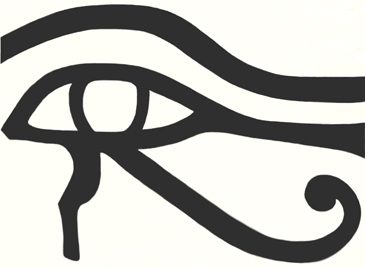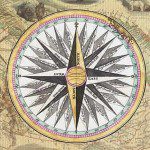Let’s pick up that thread of narrative theology, shall we?
I tend to think that one of the reasons that people change religions is that they’re looking for the right story.
How many pagans do you know whose explanations of why they left their birth religions are about story? There were no women in that story. The story excluded me because I’m gay. The story was too violent. The story, the story, the story…
It’s usually put in more elaborate language, more detail, but in many ways that is a core complaint: “The story is not about me. The story doesn’t include me.” And so people go off on a quest for a different story, one that’s big enough to include them.
This is one of the strengths of polytheisms, or systems that include many entities whose stories are sacred and sanctified: there are so many ways of being, there, and the story within a religion can encompass them all. Here, perhaps, is a serious look at that old saw that pagans are not people following a Religion of the Book, but rather Religion of the Library: there is not one story. There are all the stories, interwoven, each its own volume.

If this book doesn’t have a story that touches what I need right now, there’s another, and another. This experience, too, can be divinised.
So here is a story that means a lot to me. It has been told many times, and in many different ways, and each way tells a different story. You have probably heard it before, about kingship and right of rulership; it is a well-known story.
But I am going to tell it about hurting. About being hurt, being damaged goods. About what that means.
There were a pair of brothers who fought. For purposes of this tale it does not matter why they fought, or what over; it only matters that they fought, great violent struggles, their feet digging up the land and making great furrows that would, in time, fill with water and become holy places.
One brother was known for his clear vision and his ability to strike fear into his enemies with a look; one brother was known for his strength and his destructive rages.
They fought. They are fighting. They will fight.
And they fought dirty. They cheated. They tricked each other. They tricked other people into slanting the odds one way or another. They were in it to win it, and they were mean.
And one day, with that fighting dirty thing, one brother gouged out the other’s eyes, and one brother ripped off the other’s testicles. And the brother known for vision was blinded, and the brother known for (hur hur wink nudge say no more) prowess was impotent.
(It’s all fun and games until someone loses an eye.)
And the injuries to the brothers were healed, and peace was made, and that is where many people think the story ends.
Only there is the Eye.

The eye keeps coming back. Not an uninjured eye. The healed eye. The restored eye. If there hadn’t been the fighting dirty, the nasty, cheating, backstabbing, eye-gouging nastiness of it all, there wouldn’t be the Eye.
A little story about the Eye: some say that each piece of it can be used to write a fraction. The pupil a quarter, the eyebrow an eighth, the trailing tear a sixty-fourth. But if you add up all those pieces of the Eye, it comes to 63/64, not whole.
But the Eye, itself, is greater than the sum of those parts. The Eye is so whole that it is one of the archetypical offerings. Take this Eye, that you may be adorned with it, take this Eye, so that your heart may be refreshed, take this Eye, take this Eye…
Take this incense, the Eye…
Take this libation, the Eye…
Take this eyepaint, the Eye…
Take this cake, the Eye…
Take this wine, the Eye…
Take this loaf, the Eye…
Take this meat, the Eye…
Take this beer, the Eye…
Take this oil, the Eye…
Take my offering, the Eye.
And every time this text comes up, take this thing, it is the Eye, it is clear sight and power, it is a worthy offering, there is implicit within that: this is the 63/64 made whole. This is broken and restored. This may have been hurt, but it is not ruined. It is the left eye, the moon eye, the eye that waxes and wanes, the thing which is broken into parts and re-brightened, that is the offering.
It is not the unhurt, the undamaged, that is exalted, that is the name of each offering. That is not the special thing that gets brought forward, that gets remembered, that gets named.
It is the imperfect, the incomplete, the wounded that is perfected. It is the light that fails and comes back.
It is that which is like me.
Injury and loss do not make me damaged goods. Even if I wax and wane like the moon. Like the moon Eye.
I, even I, with my scars, with my history, with my disabilities, with my failures, am pure.
I, even I, am mighty.
And I can place that on my altar and I can do so in confidence that I bring a worthy offering.

Patheos Pagan on Facebook.

the Agora on Facebook
Hills of the Horizon is published monthly on the 29th here on the Agora. You can subscribe by RSS or via e-mail.
Please use the links to the right to keep on top of activities here on the Agora as well as across the entire Patheos Pagan channel.

















